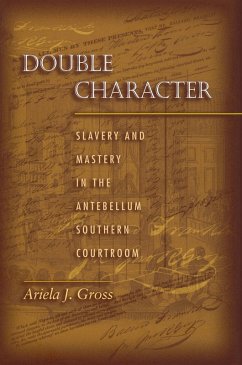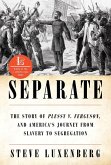In a groundbreaking study of the day-to-day law and culture of slavery, Ariela Gross investigates the local courtrooms of the Deep South where ordinary people settled their disputes over slaves. Buyers sued sellers for breach of warranty when they considered slaves to be physically or morally defective; owners sued supervisors who whipped or neglected slaves under their care. Double Character seeks to explain how communities dealt with an important dilemma raised by these trials: how could slaves who acted as moral agents be treated as commodities? Because these cases made the character of slaves a central legal question, slaves' moral agency intruded into the courtroom, often challenging the character of slaveholders who saw themselves as honorable masters. Gross looks at the stories about white and black character that witnesses and litigants put forth in court. She not only reveals the role of law in constructing "race" but also offers a portrait of the culture of slavery, one that addresses historical debates about law, honor, and commerce in the American South.
Gross maintains that witnesses and litigants drew on narratives available in the culture at large to explain the nature and origins of slaves' character, such as why slaves became runaways. But the legal process also shaped their expressions of racial ideology by favoring certain explanations over others. Double Character brings to life the law as a dramatic ritual in people's daily lives, looking at trials from the perspective of litigants, lawyers, doctors, and the slaves themselves. The author's approach combines the methods of cultural anthropology, quantitative social history, and critical race theory.
Gross maintains that witnesses and litigants drew on narratives available in the culture at large to explain the nature and origins of slaves' character, such as why slaves became runaways. But the legal process also shaped their expressions of racial ideology by favoring certain explanations over others. Double Character brings to life the law as a dramatic ritual in people's daily lives, looking at trials from the perspective of litigants, lawyers, doctors, and the slaves themselves. The author's approach combines the methods of cultural anthropology, quantitative social history, and critical race theory.
Dieser Download kann aus rechtlichen Gründen nur mit Rechnungsadresse in A, D ausgeliefert werden.









